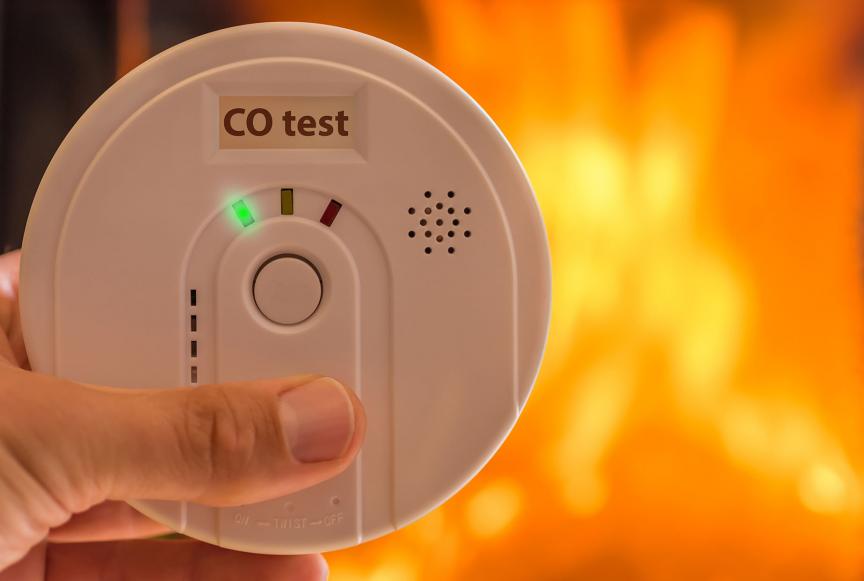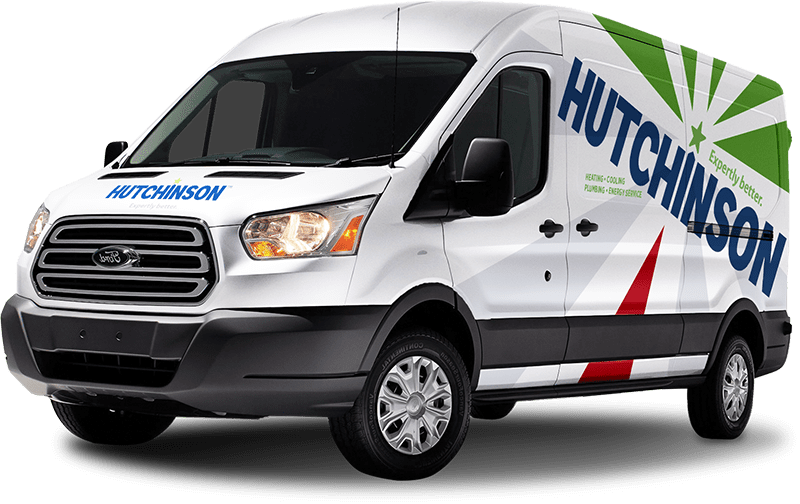
1. UNDERSTAND THE COMMON SOURCES OF CO
One surprising part of homeownership is knowing the risks associated with the different fuels that support your household and its activities. Carbon monoxide (CO) is produced and released by most home heating equipment on a constant basis. However, properly designed and well-maintained heating systems channel this gas out of the building so that residents are never exposed. Failing to take care of your home heating system or failing to have an outdated heater replaced are two things that can greatly increase the risk of carbon monoxide exposure.
There’s also a serious risk of carbon monoxide poisoning when homeowners use outdoor appliances inside. Any time you use fuel-burning equipment, this equipment must be correctly vented. This includes fire pits, camping stoves, outdoor grills, and more. Always carefully read the warning labels on outdoor equipment before attempting to use it in any non-ventilated area. This remains true even when the power goes out. These appliances are your only choice for lighting, cooking, or any other power-dependent essentials. If manufacturers advise against using an appliance indoors, always set it up how and where the manufacturer has recommended.
2. WARM YOUR CAR UP OUTSIDE
One of the best things to remember in your efforts to prevent CO poisoning is that you should never run any engine indoors. If you want to warm your car up before starting your daily commute, be sure to pull it outside of your attached garage first. This will ensure that all CO fumes escape into the outdoor air and that none are entering the actual living environment. Although CO poisoning can be deadly, even moderate, short-term exposure to carbon monoxide can cause:
- Chest pain
- Nausea
- Vomiting
- Weakness
- Headaches
This also applies to generators. If you have a portable generator that you use for power, it should always be operated outside. Because of the excessive risk associated with indoor generator installation, these projects are virtually never supported by local building codes.
3. MAKE SURE THAT YOUR VENTS AREN’T BLOCKED
Venting CO-producing appliances only works when vents are clean and free of blockages. Take the time to inspect the vents throughout your home on a regular basis. Look for build-ups of lint, dirt, dust, pet hair, and other debris that might keep air from moving through them freely. You’ll also want to verify that snow and ice build-up aren’t blocking these extremely important exits during the winter months. Establish a regular schedule for checking the outdoor vents for your dryer, fireplace, stove, and furnace. You should also set a schedule for regular chimney flue cleaning if you often rely on your wood-burning fireplace for warmth in the winter.
4. HAVE CARBON MONOXIDE DETECTORS INSTALLED
Every home in South Jersey with fuel-burning appliances should have a carbon monoxide detector installed. In fact, it’s important to have at least one functional carbon monoxide detector on every floor. This includes installing a CO alarm in the basement of your home. Some of the latest options in CO detectors and alarms can be interconnected. This way, if a carbon monoxide leak is detected in one area of the home, all connected alarms will sound an alert.
5. REGULARLY INSPECT AND MAINTAIN YOUR CARBON MONOXIDE DETECTORS
Much like smoke detectors, fire extinguishers, and other preventative installations, CO detectors can be easily overlooked. Even after you’ve had these devices installed, you’ll still need to periodically test them and replace their batteries. Some devices come with backup batteries. With these, CO alarms will continue working even after a power outage has occurred. However, keeping a few extra batteries handy will definitely prove helpful if your home is without power for several days. Battery replacements, a light dusting of the device exterior, and other maintenance should always be performed according to the manufacturer’s recommended schedule.
6. SCHEDULE REGULAR HEATER MAINTENANCE
If you’re diligent about operating engine-powered appliances that aren’t vented outdoors, then your household’s greatest risk for carbon monoxide poisoning likely comes from your fireplace or your home heating system. Scheduling regular maintenance for these two home features can go a long way towards keeping everyone safe. Having your fireplace and heater professionally inspected and maintained ahead of the cold season will give you peace of mind, and it will allow contractors to identify minor or developing issues before they have the opportunity to cause anyone harm.
At Campbell Comfort Systems, we’ve been providing reliable heating services to residents of the greater West Deptford, New Jersey, area since 1993. South Jersey locals can call us for all their wintertime HVAC needs. We also provide indoor air quality services, on-demand water heaters, heat pumps, and mini-splits. If your home heating equipment is due for routine maintenance, call us today.

